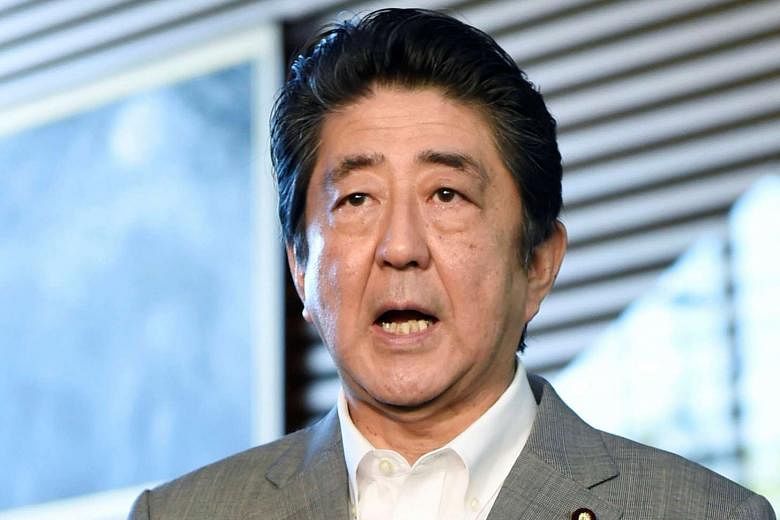BEIJING (AFP) - Japanese Prime Minister Shinzo Abe earned unusual praise from Chinese netizens on Wednesday (Sept 14) - but for the quality of his penmanship, rather than his diplomacy.
The Japanese leader was lauded after he purportedly left a handwritten note in Chinese thanking a cleaner at the hotel he stayed in for the Group of 20 summit in Hangzhou last week. It gave Mr Abe's name, title and the date, adding: "Thanks."
It was posted on China's Twitter-like Weibo last week by a journalist who founded what is said to be Japan's largest Chinese-language news website, and had been reposted more than 700 times by Wednesday.
"His characters are good-looking," wrote one poster.
Another appreciated his attention to detail, saying, "This small gesture shows the nation's breeding", and adding the country was "formidable" and worthy of respect.
A spokesman at Mr Abe's office could not confirm the authenticity of the note, but said that he had stayed at the Sheraton Grand Hotel, on whose notepaper it was written.
"Does he know that he is nearly scolded to death by Chinese people?" wrote one poster, adding "this behaviour can by no means draw any verbal abuse".
The reaction is a contrast to how Mr Abe is often portrayed by Chinese media and online, where an army of posters regularly comment in praise of Beijing's Communist government.
Beijing and Tokyo are at loggerheads over disputed islands and wartime history, and Mr Abe has raised hackles with his criticism of his neighbour's assertiveness in the South China Sea.
Mr Abe has regularly been blasted by state-run Chinese media for his impenitent comments on Japan's wartime history and its invasion of China, publicly questioning claims that the Japanese military systematically compelled women to become sex workers.
In 2013, he visited Tokyo's controversial Yasukuni Shrine, which honours the country's war dead, including several high-level officials executed for war crimes after World War II.
The two countries are locked in a long-running dispute over uninhabited islets in the East China Sea, and Mr Abe has vocally criticised China for rejecting a July ruling by an international tribunal invalidating its extensive claims to the South China Sea.

